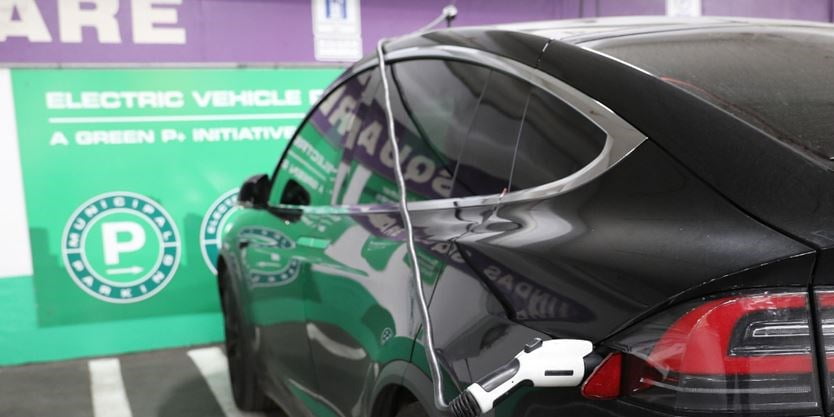
Queen’s Park should let the free market bring electric vehicles along and not be tempted by taxes and quotas. – Toronto Star file photo
The road to Ontario’s electric-car future is long, twisted and filled with deep potholes, as the provincial government is discovering.
Despite doling out $75 million in rebates to people who buy electric vehicles and spending $20 million on a network of public charging stations, the Liberals have failed to persuade drivers to end their love affair with the internal combustion engine. So far at least.
Electric vehicle sales represented less than one per cent of all passenger vehicle sales in Ontario last year.
And now, experts such as auto industry analyst Dennis DesRosiers, warn there’s “zero” chance of the government hitting its target of having electric cars make up five per cent of passenger vehicle sales in the province by 2020.
These are disappointing results.
Yet the provincial government shouldn’t panic or start getting tough to force drivers to change their ways.
Shifting from vehicles powered by gasoline or diesel — with all their carbon emissions — to electric vehicles is an essential part of Ontario’s plans for fighting climate change.
But while the public generally supports these initiatives and accepts the government’s role in making them happen, a reality check is in order.
Going electric will be a generational shift, taking 10 to 20 years.
The danger is that Ontario will be tempted to pick up the economic sledgehammers being wielded by more interventionist governments such as Quebec.
La belle province introduced quotas for electric vehicle sales requiring carmakers to sell a certain percentage of electric or hybrid vehicles or, if they miss the target, buy credits.
While Quebec’s plan calls for 3.5 per cent of the vehicles sold in 2018 to be electric or hybrid, by 2025 that percentage is supposed to increase to an astonishing 22 per cent.
Calling the plan little more than a new tax, the Montreal Economic Institute believes the quotas will drive up the cost of conventional cars — something that would hurt lower-income Quebecers.
Meanwhile, even Quebec’s own environment department admits the aggressive sales goals will not be met.
Rather than punish consumers here, Ontario should review its policies for encouraging electric-vehicle sales and be ready for a tune-up.
Norway invested heavily in building an extensive network of charging stations. Partly as a result, 24.4 per cent of the cars registered in that country are now electric — the highest rate in the world.
Perhaps Ontario should invest less on rebates and more to build a comparable network in this province.
In addition, it should be patient and trust the free market a little more.
Today’s consumers are justifiably concerned about the high sticker price on electric vehicles as well as their limited range and the challenges of charging them.
As electric-vehicle technology improves, prices drop and the number of charging stations rises, more drivers will go electric.
There were only seven electric vehicle models available in Canada in 2011, for instance. Today, there are more than 30.
The future of driving is undoubtedly electric. But the journey will take more time than the Liberals hoped.
[“Source-thespec”]
